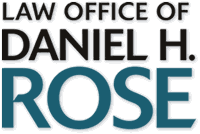15 September 2021 After safety, the first thought that comes after a car accident is, “Will my insurance go up?” Sometimes, this thought may even alter the way a driver handles the situation. They may opt to not get the police involved for fear that their insurance might go up. Accidents don’t always require two moving cars to collide. Statistics from the National Highway Transportation Safety Administration show a third of collisions are caused from behind. These typically happen when a car runs into another already car stopped at a red light. Drivers also collide with stationary objects, like stop signs and parked cars. The good news? Not all accidents will make insurance premiums rise. Insurance companies only raise premiums for what they deem “chargeable” accidents. Chargeable Accident Defined. In California, only chargeable accidents can lead to higher insurance premiums. A chargeable accident is when a driver is more than 50% at fault. The accident also had to cause: Property damage. This can include damage to another vehicle, fence, or garage. Bodily injury or death Not All Accidents Are Chargeable Since chargeable accidents are where the driver is more than 50% at fault, non-chargeable accidents mean the insured person was not to blame. In a non-chargeable accident, your insurance rates will not go up. Some examples of non-chargeable accidents include: A legally parked car that suffered damage Stopped at a red light and rear-ended while not moving Proof of Fault An auto insurance company may require proof that the accident was not your fault, and therefore, not chargeable. The following documents will be helpful to prove that the accident is not chargeable. It’s always a best practice to thoroughly read through any report or writing you intend to submit as proof. You should make sure that any information submitted correctly describes the accident. Police reports. At times, the information may include the party at fault. If there is a statement from the other driver admitting guilt, this should be submitted. Written proof of the other driver’s insurance company accepting responsibility Receipts or documents showing that you were reimbursed for damages Can My Insurance Company Find Out About the Car Accident? An auto insurance company will look at the motor vehicle record (MVR) when a driver applies for a new policy and t renewal times. A motor vehicle record will include accidents reported to the state. In California, an accident must be reported to the DMV if a person is killed, harmed, or property damage is more than $1,000. The accident must also be reported within 10 days of when it occurred. Auto Insurance Surcharges A surcharge is defined as an increase in your insurance coverage after a chargeable accident. An auto insurer cannot start a surcharge mid-policy. They must wait until renewal. Besides chargeable accidents, other variables can impose an insurance surcharge. These include moving violations and chargeable incidents. Chargeable Incidents A chargeable incident is a moving violation. Examples include speeding, leaving the scene of an accident, or driving under the influence of drugs or alcohol. Chargeable accidents and incidents can both cause insurance rates to increase for 3-to-5 years. The period will depend on whether there are subsequent chargeable accidents or incidents. Contact an Experienced Attorney If you have been the victim of a car accident and you’ve been surcharged, you will need a San Francisco auto accident lawyer to defend you. Call us at 415-946-8900 or at Dan Rose Law to schedule a free consultation.
